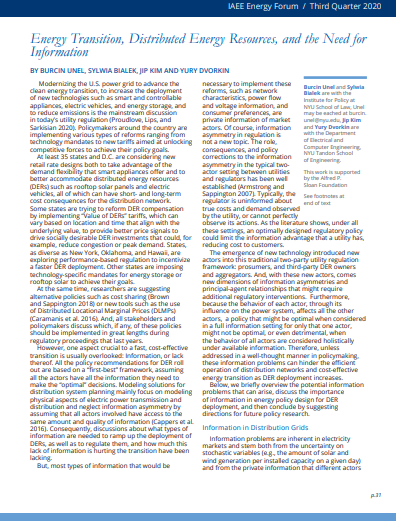-
Comments to EPA on Delay of Emissions Rule for Wood Heaters
The Environmental Protection Agency (EPA) is proposing to amend the 2015 New Source Performance Standards (NSPS) for residential wood heating devices, purporting to respond to retailer needs in the wake of the COVID-19 pandemic. Our comments detail how how the proposal contradicts the Clean Air Act’s mandate and longstanding agency guidance. The proposed rule will, even under the agencies’ own analysis, cause net harms to the public without providing any reasonable justification.
-
Amicus Brief on Revisions to the Supplemental Nutrition Assistance Program
Under recent revisions to the Supplemental Nutrition Assistance Program, nearly 700,000 current beneficiaries would lose eligibility—harming the health of those individuals and likely causing economic disruption in the food sector. We filed an amicus brief in a federal lawsuit challenging the rule, detailing how the Department of Agriculture’s analysis fails to assess the profound and widespread costs of substantial disenrollment from SNAP assistance. Our brief was cited several times in the State Plaintiffs' reply brief to support their argument that the federal government did not adequately consider the indirect costs of the rule.
-
Comments to FERC on Transmission Incentives
The Federal Energy Regulatory Commission proposed changes to its electric transmission incentives, which aim to spur the deployment of technologies that enhance reliability, efficiency, and capacity of transmission facilities. We submitted comments identifying significant problems with the proposal, including its reliance on a benefit-cost ratio for project selection.
-
Energy Transition, Distributed Energy Resources, and the Need for Information
Modernizing the U.S. power grid to advance the clean energy transition, to increase the deployment of new technologies such as smart and controllable appliances, electric vehicles, and energy storage, and to reduce emissions is the mainstream discussion in today’s utility regulation. Policymakers around the country are implementing various types of reforms ranging from technology mandates to new tariffs aimed at unlocking competitive forces to achieve their policy goals. We briefly overview the potential information problems that can arise, discuss the importance of information in energy policy design for DER deployment, and then conclude by suggesting directions for future policy research.
-
Comments on Oklahoma’s Medicaid Waiver
The Oklahoma Health Care Authority has requested permission from the U.S. Department of Health and Human Services to change the state’s Medicaid program in a variety of ways—including by introducing work requirements and premium payments for some beneficiaries. We filed comments opposing the request and explaining why the benefits, if any, of work and cost-sharing requirements are unlikely to justify the accompanying health and administrative costs.
-
Comments to DOE on Energy Conservation Standards for Motors
The Department of Energy requested input on impact and emissions analysis for upcoming energy conservation standards. We submitted comments encouraging DOE to continue to monetize the full climate benefits of greenhouse gas emissions reductions.
-
Comments to FERC on Middlesex Extension Natural Gas Project
We submitted comments to the Federal Energy Regulatory Commission (FERC) on its environmental assessment of the Middlesex Extension Project in New Jersey. FERC failed to provide a meaningful analysis of the pipeline facilities' climate effects.
-
Comments to FERC on NERA Net Metering Petition
The New England Ratepayers Association (NERA) recently petitioned the Federal Energy Regulatory Commission (FERC) to effectively overturn net metering policies nationwide. While FERC has previously and definitively answered the jurisdictional question concerning net metering, NERA asserts without evidence that controversy persists. We submitted comments describing the flaws of NERA’s argument and urging FERC to reject the petition.
-
Comments to HHS on Blood Donation Policies
The Department of Health and Human Services (HHS) asked for public input on a forthcoming report to Congress regarding strategies for ensuring an adequate blood supply during public health emergencies. Our comments recommended that the report endorse elimination of the Food and Drug Administration’s deferral policy for donations from men who have sex with men. The policy, which bars gay and bisexual men from donating blood for three months from the date of their last sexual contact, relies on outdated science regarding HIV transmission risk, stigmatizes gay and bisexual men, and increases the likelihood of blood shortages.
-
Amicus Brief in Rio Grande LNG Case
If constructed, the Rio Grande liquefied natural gas terminal and pipeline would be responsible for greenhouse gas emissions resulting in billions of dollars in climate damages. The Federal Energy Regulatory Commission’s (FERC) analysis estimates the quantity of the project’s emissions but does not analyze the context, intensity, or significance of the incremental climate damages they will cause. We submitted an amicus brief to the U.S. Court of Appeals for the D.C. Circuit that explains how FERC’s failure to monetize the project’s climate damages using Social Cost of Carbon estimates is arbitrary.







